Health and Mental Health
This page will answer frequently asked questions about healthcare and how to navigate through difficult times, like the COVID-19 pandemic.
MENU
- I do not have health insurance through my job, Medicare, Medicaid, or any other coverage. Where can I get health coverage?
- Am I eligible for financial help with insurance premiums or eligible for Medicaid coverage?
- I did not previously enroll in Medicare, but I need to enroll now. Where do I find information?
- What are some options if I lose my health insurance?
- Is there someone to help me to understand my options for healthcare and help me to apply?
- How can I get medical care while maintaining social distancing?
- Are there any resources available to obtain free or low-cost health and dental coverage for children and teens?
- I need help paying for a family member’s funeral or burial expenses for a death related to COVID-19, is there assistance?
- I want to know more about COVID-19 vaccinations for people with disabilities. Where can I find this information?
If you don’t have health insurance through a job, Medicare, Medicaid, the Children’s Health Insurance Program (CHIP) or another source that provides qualifying health coverage, you can find coverage through the marketplace. Open enrollment is November 1 – January 15 or you can get coverage or change plans outside the yearly open enrollment if you have a life change or income that qualifies or if you qualify for Medicaid of CHIP.
All Marketplace plans cover treatment for pre-existing medical conditions and can’t terminate coverage due to a change in health status, free preventative health services when delivered by a doctor or provider in your plan’s network, and 10 essential health benefits. When you have Marketplace insurance, you’ll pay your monthly premiums directly to the insurance company — not to the Marketplace. Your coverage won’t start until you pay your first premium. You can apply for coverage several ways.
An overview of financial assistance provided under the Affordable Care Act (ACA) for people purchasing coverage on their own through health insurance marketplaces (called Exchanges) is available here: Questions About Health Insurance Subsidies.
A helpful Health Insurance Marketplace Calculator is also available to find estimates of health insurance premiums and subsidies in each state.
People who are eligible for Medicare may need to enroll in coverage for the first time. This includes people who have lost employer-based coverage and people who missed other enrollment periods. Other individuals who are already enrolled in Medicare may need to switch to Medicare Advantage or Part D prescription drug plans to better meet their needs.
It is important to find a program you are eligible for in order to have health insurance coverage whenever possible, particularly if you have a disability or other chronic health condition. In most cases, you should be able to complete one application to find what’s available to you through the health insurance exchange. And, if you need help, there are navigators or certified application counselors affiliated with local nonprofits to help you.
Yes, healthcare.gov has two option to help you get local, marketplace-certfied help. You may search for a local agent/broker or assister to help you or you may choose to be contacted by a local agent/broker. These individuals may assist you in learning more about your options and help you to enroll or re-enroll.
As a result of the COVID-19 Public Health Emergency, many individuals still do not want to have to choose between medical care and social distancing. Many health care providers continue to provide care through telehealth services provided by doctors and insurance companies. Recently, Centers for Medicare & Medicaid Services (CMS) has taken action to assist states in providing telehealth services as an option under Medicaid, CHIP and Medicare.
Medicaid and CHIP offer free or low-cost health insurance for children and teens. Children can get regular check-ups, immunizations, doctor and dentist visits, hospital care, mental health services, prescriptions and more. Children in a family of four earning up to $80,000 a year or more may qualify (income levels vary by state). Families and individuals can apply online, by phone, by mail or in person.
To help ease some of the financial stress and burden caused by the pandemic. FEMA provides financial assistance for funeral expenses incurred after Jan. 20, 2020 for deaths in the United States related to coronavirus (COVID-19).
Funeral Assistance is not limited to US citizens and information is available in multiple languages including American Sign Language (ASL). Though the COVID-19 incident period ended on May 11, 2023, FEMA will continue to provide funeral assistance until Sept. 30, 2025, to those who have lost loved ones due to this pandemic.
Fraud Alert: FEMA has received reports of scammers reaching out to people offering to register them for funeral assistance. FEMA does not sent any such notifications and does not contact people before they register for assistance.
The Disability Information and Access Line (DIAL) is now available to help people with disabilities access vaccinations. The DIAL’s trained staff is standing by to:
- Help find local vaccination locations
- Assist with making vaccination appointments
- Connect callers with local COVID testing options
The hotline also can provide information and resources to answer questions and address concerns about the vaccines and can connect callers to information and services that promote independent living and address fundamental needs, such as food, housing, and transportation.
Call or text 888-677-1199, chat online, or connect directly online with an agent using ASL.
There are a variety of tools, resources and help lines which provide support in several ways. Many provide support 24/7 via telephone and some use private messaging and TTY; some may provide help in Spanish.
You’re not alone. Life and world events can present multiple tensions and financial stresses in our world today. These challenges also present an opportunity to come together within our families and our communities to improve understanding of our mental health.
It’s important to engage in open, honest dialogue with friends and loved ones, to demonstrate compassion and kindness, and to practice self-care by exercising, meditating and consuming the news in measured doses. And to reach out to those who may be isolated and need extra support. These actions can save lives and positively change our collective culture surrounding mental health for the long-term.
The American Foundation for Suicide Prevention (AFSP) has gathered tools and resources to assist with mental health care and suicide prevention, along with a helpline to answer your questions, offer support and provide next steps. The National Alliance on Mental Illness (NAMI) also has a helpline available to connect with someone to speak to if you are struggling with your mental health.
View More Resources
The Financial Resilience Center was developed by National Disability Institute with generous funding from the Wells Fargo Foundation.




